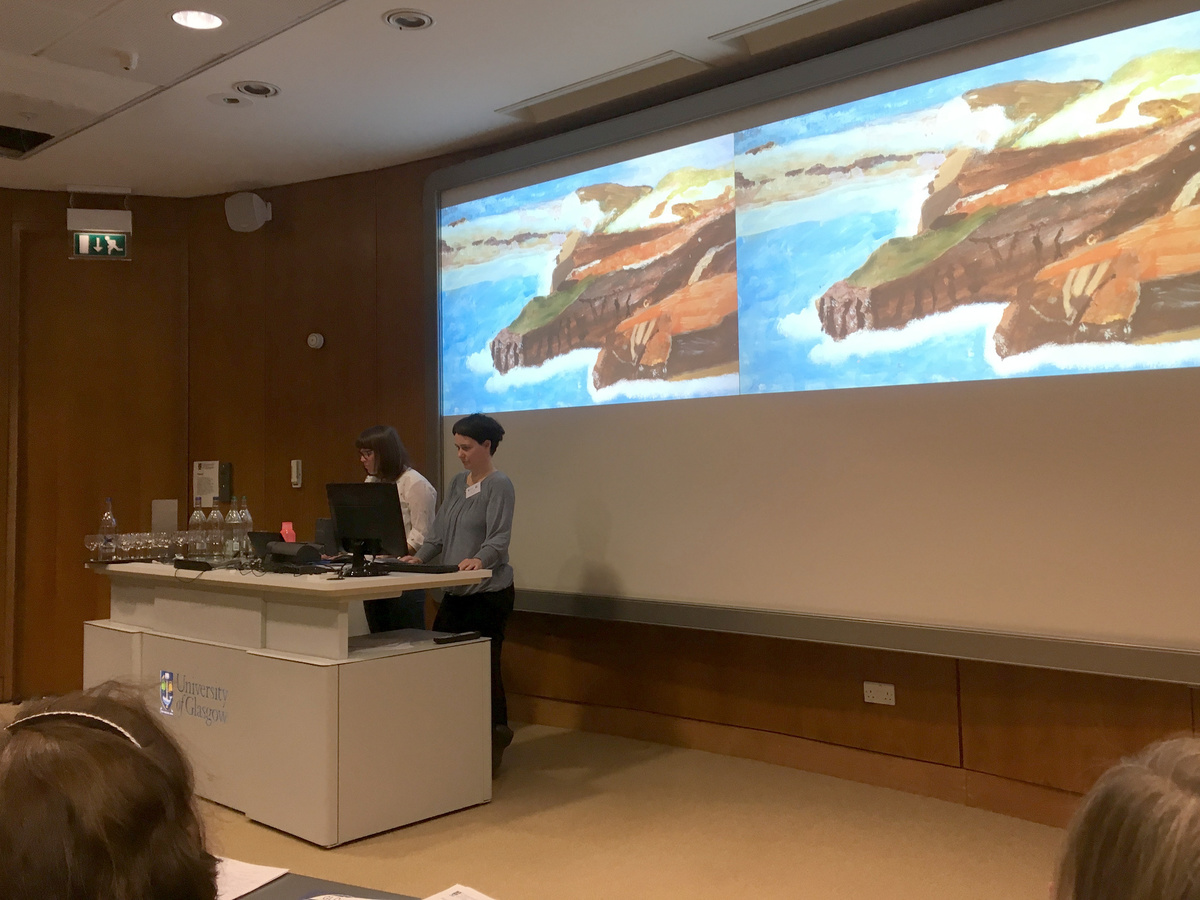Presentation, End of Life Studies Research Group's networking event, University of Glasgow April 2017
Kirsty and Jeni introduced their role in The Art Room in supporting a person’s autonomy in relation to their early conversations with philosopher Prof. Ben Colburn, as part of a networking event organised by the End of Life Studies Research Group at the University of Glasgow.
The audience for the networking event included academics and professionals from a range of disciplines including: anthropology, philosophy, social work, medicine, law, veterinary science, nursing, government policy, theology, palliative care and creative writing.
Our presentation was received well and generated lots of interesting questions and comments. Ben’s presentation and introduction to the concept of autonomy in relation to end of life immediately before ours, helped to contextualise our approach in the Art Room in terms of autonomy. We were able to talk about how the concept of autonomy was practically informing our work with patients and families at the hospice.
Jeni spoke about when she first began to see connections between the work we are doing in the art room and the subject of autonomy. She shared her experience working with a patient who had previously been a potter and how his insights helped her to see how the artistic process supported people to reconnect with their sense of self. This particular patient brought in books to share with Jeni. One book by a Japanese potter called Shoji Hamada particularly resonated with Jeni, and she connected this to what happens in the art room.
“It is not what is seen on the surface that counts, but what is not seen. This root is what matters ... In the unseen root, the real power, the real strength of an object lies.” (Shoji Hamada)
Kirsty spoke about how our work with Ben was helping us gain a deeper understanding of the approach we use in the art room and how this supports a person’s autonomy. It is useful for us to consider people’s experiences in terms of whether choices are genuine choices or are made from a limited menu of predefined “choices”. This encourages us to reconsider the questions we ask people when seeking feedback on their experience of the art room.
We believe having a deeper understanding of what is taking place for the people we work with helps us to improve their experience of the art room and to support patients, families and carers to develop their own creativity. This in turn helps people to reconnect with their sense of self during a difficult and anxious time in their life.
The questions and comments we received at this event indicated that our work had a much wider impact beyond what we do within the arts service at the hospice, within the area of arts and health practice more generally, but also to other practices that work with and engage people in collaborative and participatory ways.
Prof. David Clark suggested our area of work and approach to practice could be categorised as an “intangible intervention” within the taxonomy of end of life care put forward by the End of Life Studies Research Group. An intangible intervention is described as an action that promotes "the recognition and significance of abstract and non-physical aspects of human existence, which have intrinsic value in end of life issues." (Clark D, Inbadas H, Colburn B et al. 2017)
The audience recognised the importance of a non-clinical intervention that was tailored to the individual. People were also curious how we measured our outcomes, but recognised the importance of identifying appropriate methods for gathering and reflecting on participant experience, which do not change or undermine the experience for the people we work with.
It was an interesting, diverse and stimulating day.
